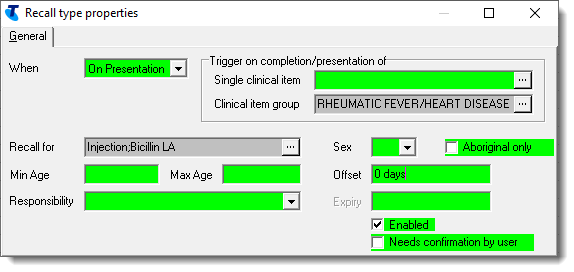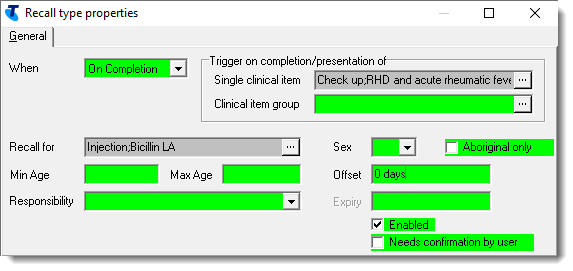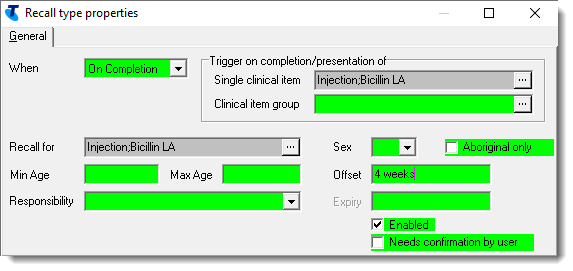Recalls for ongoing RHD management
Add on qualifier and on completion rules to continue the recall protocols for the patient after the initial recall.
- On recording an outcome for the qualifier Next RHD/ARF check
up due a recall is offered for the next Check
up;RHD and acute rheumatic fever due according to the
interval specified.
On completing a positive outcome for the qualifier GP review required? a recall is offered for a Review;GP;RHD and ARF due immediately.
-
Set up recalls for secondary prophylaxis injections:
-
Set up recalls for echocardiography.
Recalls for the clinical item Echocardiography can be triggered on qualifier based on the Echocardiography due qualifier.
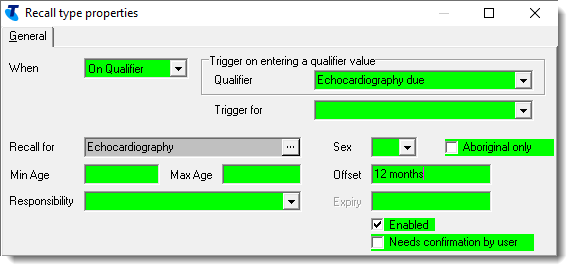 Set the following recalls:
Set the following recalls:- Offset of 12 months to trigger a recall for Echocardiography due in 12 months
- Offset of 2 years to trigger a recall for Echocardiography due in 2 years
- Offset of 3 months to trigger a recall for Echocardiography due in 3 months
- Offset of 3 years to trigger a recall for Echocardiography due in 3 years
- Offset of 6 months to trigger a recall for Echocardiography due in 6 months
- Offset of Now to trigger a recall for Echocardiography due in 0 days
-
Set up recalls for specialist follow-ups.
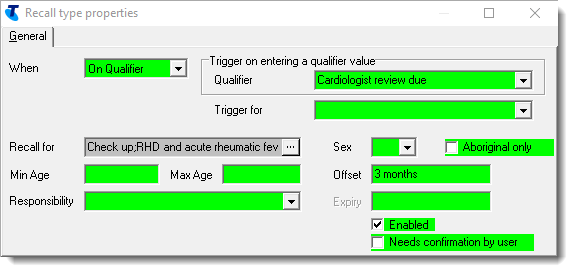
The check-up has required qualifiers to declare when the next review is due by:- Cardiologist – Cardiologist review due
- Physician – Physician review due
- Paediatrician - Paediatric review due
- Dentist – Dental review due
Tip: Recalls for the GP review and next check-up are centrally distributed.Depending on the health service, different approaches will be taken to recording recalls for these reviews. A large health service may require recalls for appropriate reviews or consults and the specialists may be ‘in-house’. Health services may have visiting specialists and prefer to trigger recalls for the same or for referrals. More remote health services may trigger referrals to external specialist away from the community.
If you already have clinical items for specialist reviews, these can be used in the recall rules. Otherwise, consider the following ICPC terms:- Recalls for in-house management for the next consultation or review
by each specialist:
- Consult;cardiologist
- Consult;physician (create this item locally)
- Consult;paediatrician
- Consult;dentist
- Recalls for external management or for formal referral details to be
recorded:
- Referral;cardiologist
- Referral;physician
- Referral;paediatrician
- Referral;dentist
For patients who already have a response to the qualifier, the recall rule will do nothing, it is effective only from the date of enabling.
When new responses are added, the clinician is prompted to accept the recall for the appropriate item due after the specified interval.

